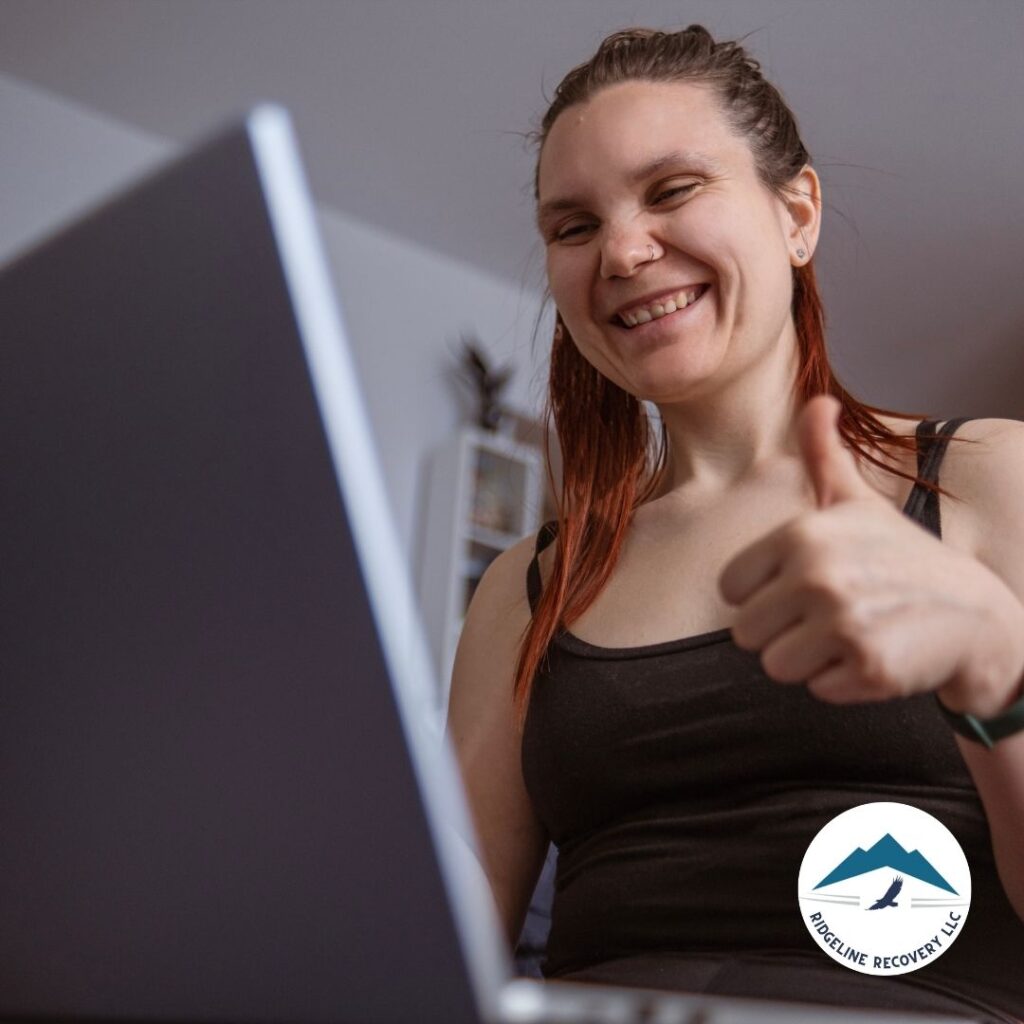When it comes to Addiction Recovery Columbus, we’re not talking about just getting sober.
We’re talking about a real shot at creating a life where addiction isn’t running the show.
Think about it.
Maybe you’ve tried to quit.
Maybe you’ve gone a week, maybe a month, only to feel that pull back to the same old habits.
Why does it feel like the grip of addiction keeps coming back, harder and stronger than ever?
That’s where the right kind of therapy—and a structured support system—comes in.
Because here’s the truth: recovery is work.
And therapy?
It’s the tool that keeps you in control, keeping your recovery strong.
So let’s get into it.
Here’s why Addiction Recovery Columbus and therapy are the team you need to tackle sobriety head-on.
Why Addiction Therapy is the Key to Breaking the Cycle
When you’re in the middle of addiction, it’s not just about the substance.
It’s about the habits, emotions, and patterns that wrap themselves around it.
Therapy—especially through resources like addiction therapy services and mental health clinics near me—helps you dig up those deeper issues.
Why did the addiction start in the first place?
What’s keeping it alive?
Addiction Recovery Columbus therapy isn’t just about “talking it out.” It’s about understanding your triggers, gaining control over cravings, and building a lifestyle that makes sobriety a real, long-term reality.
Types of Therapy You’ll Find in Columbus Recovery Centers
Cognitive Behavioral Therapy (CBT):
CBT helps you spot the negative thought patterns fueling addiction and swap them with something productive.
It’s like rewiring your brain to stop seeing addiction as the answer to stress, loneliness, or boredom.
Dialectical Behavior Therapy (DBT):
Great for people dealing with dual diagnoses (like anxiety or depression) along with addiction.
DBT teaches emotional regulation—helping you keep things steady so you’re not reaching for substances to calm down or escape.
Group Therapy:
Don’t underestimate the power of a room full of people who get it.
Group therapy connects you with people who’ve been through the wringer and come out the other side, keeping each other accountable along the way.
Addiction Recovery Columbus: Understanding the Process from Detox to Long-Term Support
Recovery isn’t a one-and-done.
It’s a journey that starts with detox and keeps going as long as you’re willing to invest in it.
When people talk about addiction recovery near me or rehab for alcoholics, they’re usually thinking about detox—the first few days when you’re clearing the substance out of your system.
But that’s just the start.
1. Detoxification Centers and Medical Detox Near Me
Detox is step one.
It’s where you break the physical grip of the substance, but it’s not the endgame.
Columbus has a solid network of drug detox centers near me and alcohol rehab centers to get you through this initial stage safely.
2. Vivitrol Clinics Near Me: Medication-Assisted Treatment (MAT)
For some, medication-assisted treatment like Vivitrol can make a huge difference in recovery.
This isn’t about swapping one substance for another—it’s about giving you the extra edge you need to stay clean.
With options like Vivitrol clinics near me, MAT can block the cravings, making it easier to focus on building a healthy lifestyle without the constant urge to relapse.
3. Building Emotional Resilience with Therapy
Here’s where therapy makes the biggest difference.
You’ve done the detox.
You’re through the physical cravings.
Now, it’s time to tackle the emotional patterns that might pull you back.
Whether it’s working with a mental health therapist near me or taking part in group therapy, this stage is all about understanding your triggers, learning coping skills, and finding new ways to deal with stress without reaching for substances.
Why Columbus? The Support Network for Addiction Recovery in Central Ohio
Columbus is no stranger to addiction.
This city has put serious resources into building a network of mental health services near me, addiction recovery centers near me, and everything in between.
Here’s what’s special about Addiction Recovery Columbus:
- Access to a Variety of Programs: Whether you need inpatient rehabs, sober living houses near me, or rehab facilities for drugs, there’s a spot for you here.
- Long-Term Support Options: It’s not just about getting clean. Columbus has sober living houses and outpatient programs designed to keep you supported long-term.
- Community and Connection: Columbus runs on community. Whether it’s through AA, NA, or alternative support groups, you’ll find a circle that understands the journey you’re on.
Real Talk: Busting the Myths About Addiction Therapy
Let’s get one thing straight.
Therapy isn’t about sitting on a couch, reliving trauma, or airing out your past for the sake of it.
Therapy in Addiction Recovery Columbus is about action.
It’s about changing the way you think, the way you respond to stress, and the way you handle life.
1. Therapy Isn’t a Magic Cure – It’s a Tool
If you think therapy is going to fix everything overnight, let’s set the record straight.
Therapy is a tool.
It gives you strategies, insights, and a new way of seeing things, but you’re the one who has to put in the work.
2. It’s Not Weak to Get Help – It’s Smart
Addiction loves isolation.
The more you try to tough it out alone, the stronger that grip gets.
Seeking therapy, whether through addiction therapy near me or mental health services near me, is a powerful move to break that cycle.

Building a Life Without Addiction in Columbus: Practical Steps and Therapy Tips
Addiction therapy is about building habits that stick.
So, how do you do that?
Here’s a breakdown of actionable tips you can use to keep your recovery rock-solid.
1. Find a Solid Routine
Routine is your best friend in recovery.
When you have a structure, it’s a lot harder to slip back into old habits.
Here’s how to start:
- Wake up at the same time every day.
- Build in time for self-care, exercise, and mindfulness.
- End the day with a routine that keeps you grounded (journaling, reading, or meditation).
2. Create a Supportive Environment
Your surroundings play a huge role in your recovery.
This could mean:
- Seeking out sober living houses if you need a change from your current environment.
- Limiting time with people who may tempt you back into old habits.
- Filling your space with reminders of why you’re committed to recovery.
3. Set Boundaries and Stick to Them
Boundaries aren’t just about keeping bad stuff out—they’re about protecting the good stuff you’re building.
Learn to say no, especially in high-risk situations.
Having boundaries isn’t selfish—it’s survival in Addiction Recovery Columbus.
Finding Your Identity in Addiction Recovery Columbus
Breaking free from addiction is just the first step.
The next? Redefining who you are without it.
After years of identifying as someone tied to substance use, the challenge now becomes discovering who you are in sobriety.
This is where addiction therapy services can help you peel back layers, helping you realize that recovery is about more than quitting—it’s about becoming the best version of yourself.
The Importance of Self-Identity in Recovery
Why does identity matter?
Because your sense of self guides your actions and your choices.
When you understand who you are, and what matters to you, you’re far less likely to fall back into old patterns.
Think about it: without a clear sense of self, any stress or temptation could sway you back into addiction.
Building an identity rooted in sobriety and purpose is one of the strongest buffers against relapse.
Navigating Work and Life Stress in Addiction Recovery Columbus
Here’s a big question: how do you handle life stress without relying on old habits?
For a lot of people, alcohol or drugs became the go-to solution for dealing with work stress, family drama, or financial pressure.
In recovery, you need strategies to handle those situations differently.
Because let’s face it—stress isn’t going away.
What’s changing is how you respond to it.
Tips for Managing Stress Without Relapse
- Set Boundaries at Work: This might mean limiting overtime or taking lunch breaks to reset.
If work stress was a trigger before, it’s crucial to create a healthier relationship with it now. - Practice Self-Care: Look, self-care isn’t just taking a bubble bath.
It’s making sure you’re physically, mentally, and emotionally equipped to handle whatever life throws at you. - Engage in Regular Therapy: Finding a mental health therapist near me can be a game-changer.
Therapists help you work through stress, offering guidance on how to manage it in a healthier way.
Relationships and Boundaries in Addiction Recovery Columbus
Let’s talk about relationships.
Some of them may be amazing, while others might hold you back.
Part of your journey in Addiction Recovery Columbus is deciding which relationships add value—and which don’t.
How to Handle Relationships That Don’t Support Your Recovery
Some people in your life may have been fine with you when you were drinking or using.
But now? Now they’re uncomfortable because your recovery holds up a mirror to their own habits.
You don’t have to cut everyone out.
Instead, create boundaries that protect your sobriety.
If a friend pressures you to drink or uses around you, it’s okay to step back.
Building a New, Supportive Social Circle
Sobriety is about more than just quitting; it’s about building a life that supports who you’re becoming.
Consider joining a sober living house near me or local support groups in Addiction Recovery Columbus where you can meet people who understand your goals and respect your journey.
The Power of Service in Addiction Recovery Columbus
Recovery isn’t just about getting help; it’s also about giving back.
One of the most transformative aspects of recovery is learning how to serve others.
You might be thinking, “What can I give when I’m just trying to stay sober myself?”
Here’s the answer: more than you think.
When you share your story, offer support, or help others in recovery, you’re strengthening your own commitment to sobriety.
Service creates accountability, purpose, and connection—three pillars that are invaluable in Addiction Recovery Columbus.
Medication-Assisted Treatment in Addiction Recovery Columbus
For some people, Medication-Assisted Treatment (MAT) can make all the difference.
In Columbus, Vivitrol clinics near me offer treatments that can curb cravings and reduce the likelihood of relapse.
How Does MAT Work in Addiction Recovery Columbus?
MAT combines medications like Vivitrol or Suboxone with therapy to create a comprehensive treatment approach.
The medication helps control cravings, while therapy addresses the root causes of addiction.
This approach is especially effective for people who feel overwhelmed by cravings or have a high risk of relapse.
With MAT, you’re not alone—you have the support of a medical team and a treatment plan designed specifically for you.
If you’re interested, reach out to Ridgeline Recovery to discuss whether MAT might be right for you.

Rebuilding Your Physical Health in Addiction Recovery Columbus
Addiction takes a toll on the body.
It impacts everything from your liver to your immune system to your brain chemistry.
In recovery, you now have the opportunity to rebuild physically, which directly supports your emotional and mental well-being.
Nutrition for Recovery
Proper nutrition fuels the body and helps rebalance the systems impacted by substance use.
Foods rich in vitamins, minerals, and antioxidants are essential for healing.
Here are some key nutrients to focus on:
- Proteins: Essential for brain health and mood stability.
- Complex Carbs: Stabilize blood sugar, which can reduce cravings.
- Healthy Fats: Support brain health and overall recovery.
Exercise as a Tool in Recovery
Exercise isn’t just for fitness—it’s one of the most powerful tools for mental health.
Physical activity releases endorphins, reduces stress, and provides a healthy way to manage emotions.
Understanding and Managing Triggers in Addiction Recovery Columbus
Triggers are powerful.
It’s not enough to know that they exist; you have to know how to deal with them when they show up.
Creating a Trigger Management Plan
- Identify Triggers: These could be places, people, or emotions that drive you toward relapse.
- Build Coping Mechanisms: This could be calling a friend, going for a run, or practicing deep breathing.
- Stay Proactive: Check in regularly with yourself and your support network to keep things on track.
Financial Stability in Addiction Recovery Columbus
Money stress is real.
For some, addiction came with financial hardship, and rebuilding finances in recovery can feel like a mountain to climb.
Tips for Financial Health in Recovery
- Create a Budget: Outline your income, expenses, and savings goals.
- Set Small, Realistic Goals: Trying to fix everything overnight isn’t realistic. Focus on small, achievable steps.
- Work with a Financial Advisor: Some people find working with a financial planner helpful for getting on track.
Addiction Recovery Columbus is about total transformation, and financial stability is a big part of that.
Relapse Prevention Skills for Long-Term Success
The longer you’re sober, the stronger your prevention skills need to be.
That means you have to keep adding tools, learning new skills, and staying vigilant.
Some effective relapse prevention skills include:
- Mindfulness: Being aware of your thoughts and emotions without judgment.
- Accountability: Staying connected with a support group or sober living house near me.
- Continuous Therapy: Recovery isn’t a one-time thing.
Ongoing therapy helps keep you strong.
Inspiration and Hope in Addiction Recovery Columbus
Here’s the truth: recovery is tough.
But if you’re reading this, you already have the resilience to make it through.
Addiction doesn’t define you.
With the right tools, support, and community, Addiction Recovery Columbus can be the first chapter of a new life—a life where you’re in control.
Breaking Through Relapse Cycles in Addiction Recovery Columbus
Relapse can feel like failure.
It’s disheartening, but it’s also incredibly common.
In fact, relapse is considered part of the process in Addiction Recovery Columbus, and knowing how to handle it is key to your long-term success.
If you’ve relapsed before, know that you’re not alone, and it doesn’t mean you’re back to square one.
What matters is learning from it, figuring out what triggered it, and setting up guardrails for the future.
1. Recognising Your Triggers and Patterns
Relapse usually isn’t a sudden event.
It’s a slow build-up, often caused by emotional, social, or environmental factors.
By understanding these triggers, you’re in a better position to intercept the relapse cycle before it starts.
Common triggers to watch out for:
- Stress: Life pressures or unresolved past traumas.
- Social situations: Environments or people that encourage or enable old habits.
- Emotions: Anxiety, depression, or even boredom can prompt a relapse.
Action Step: Work with your mental health therapist near me or addiction therapy near me to develop a personalised trigger map. This is a list of situations, people, and emotions that put you at risk, along with strategies to counteract them.
2. Building a Relapse Prevention Plan
A relapse prevention plan isn’t just for moments when you feel weak.
It’s a proactive, structured strategy that keeps you engaged in your recovery, day in and day out.
A solid plan might include:
- Daily Check-Ins: Journal or reflect on your feelings, triggers, and progress. This can reveal patterns before they become problems.
- Support System: Having a group of people—whether in addiction recovery near me groups or personal networks—who understand your journey and can step in when needed.
- Therapy and Medication Management: For those using Vivitrol clinics near me or similar treatments, staying consistent with medication can help manage cravings and keep relapse at bay.
The Role of Family in Addiction Recovery Columbus
Recovery doesn’t happen in a vacuum.
Your family or close circle can be a massive asset if they know how to support you properly.
At the same time, there’s no shame in setting boundaries if certain relationships make sobriety harder.
Why Family Support Matters:
- It provides a sense of accountability and encouragement.
- It helps break the isolation that often accompanies addiction.
- It creates a stable, supportive environment—key for long-term success.
How to Educate Family Members on Supporting Your Recovery
Many families want to help but don’t know where to start.
Education is the first step.
Consider introducing your family to resources on addiction treatment Columbus Ohio and encourage them to join support groups like Al-Anon or Nar-Anon, where they can learn how to support without enabling.
Managing Co-Occurring Disorders in Addiction Recovery Columbus
Many people in recovery are dealing with more than just addiction.
Co-occurring disorders—conditions like depression, anxiety, or bipolar disorder—are incredibly common in those seeking addiction recovery Columbus.
And while it can make things more complicated, addressing both issues together is essential for a successful recovery.
Understanding the Connection Between Mental Health and Addiction
Substance use often starts as a way to cope with undiagnosed or untreated mental health conditions.
By integrating mental health therapy into your recovery plan, you’re setting yourself up for long-term stability and success.
Columbus has a range of mental health treatment centers near me that provide dual-diagnosis services, meaning they treat addiction and mental health together.
This holistic approach can prevent the cycle of self-medication and addiction.
Alternative Therapies in Addiction Recovery Columbus
Recovery isn’t one-size-fits-all.
While traditional therapy is crucial, there’s a lot to gain from complementary therapies that address mind, body, and soul.
Some effective alternative therapies include:
1. Yoga and Mindfulness Practices
Yoga and mindfulness aren’t just for relaxation—they help you build resilience against stress and cravings.
When you’re mindful, you’re more aware of your body, thoughts, and emotions, which helps you spot relapse triggers in real-time.
2. Art and Music Therapy
Expressing emotions through art or music can be transformative.
It’s especially helpful for people who struggle to open up in traditional therapy settings.
Columbus offers several programs that incorporate these creative outlets, making therapy accessible in unique and healing ways.
3. Equine Therapy
Believe it or not, working with horses has been shown to improve emotional health, responsibility, and empathy.
It’s a unique form of therapy that lets you experience growth and recovery in a non-traditional setting.
Achieving Sustainable Sobriety: The Power of Sober Living
Sober living houses near me can be a game-changer for people coming out of rehab or inpatient facilities.
These houses provide a structured, supportive environment where you can practice daily routines without the pressures and temptations of your old environment.
In Columbus, sober living houses are designed to support your transition back into everyday life while keeping you connected to a community that prioritizes sobriety.
Building a New Life After Addiction Recovery Columbus
Long-term sobriety isn’t just about what you leave behind.
It’s about what you build going forward.
In Addiction Recovery Columbus, the focus isn’t only on cutting out substances but on creating a life filled with purpose, community, and joy.
Here are some key areas to focus on as you rebuild.
1. Developing Healthy Habits and Routines
The more positive habits you create, the less room there is for addiction to creep back in.
Exercise, mindfulness, nutrition, and self-care aren’t just buzzwords—they’re foundations for a healthy, fulfilling life.
2. Finding Community Beyond Therapy
Recovery is an ongoing journey, and connection is vital for staying the course.
Look for local support groups, volunteer opportunities, or clubs that align with your interests.
3. Redefining Your Purpose
Maybe it’s a new career path, a personal project, or simply becoming the healthiest version of yourself.
Recovery can give you a new lease on life—a chance to find what really matters to you.
FAQs on Addiction Recovery Columbus and Therapy
Q: Can I stay sober without going to rehab?
A: While rehab provides a structured, intensive environment, there are other paths.
With addiction therapy services and a solid support system, some people succeed without inpatient rehab.
Q: How can I deal with the shame and guilt associated with addiction?
A: Shame and guilt are common in recovery.
Therapy can help you work through these feelings and focus on the positive steps you’re taking to change.
Q: Is relapse a normal part of addiction recovery?
A: Yes, relapse happens to many people, and it doesn’t mean failure.
What’s important is learning from it and continuing forward in your recovery journey.
Q: How does addiction therapy differ from general mental health therapy?
A: Addiction therapy focuses on the specific triggers, patterns, and emotions related to substance use.
It’s designed to build skills for managing cravings and maintaining sobriety.
Q: How can therapy help with addiction recovery?
A: Therapy digs deep, addressing the root causes of addiction and teaching you skills to handle cravings, stress, and emotional triggers.
Q: Is therapy enough, or do I need a recovery program too?
A: Therapy is part of the puzzle. Combining therapy with a recovery program (like a twelve-step group or outpatient program) can strengthen your results.
Q: Are there specific therapies that work better for addiction?
A: Cognitive Behavioral Therapy (CBT) and Dialectical Behavior Therapy (DBT) are widely used and effective for addiction recovery.
Q: How do I know if I need medication-assisted treatment?
A: This depends on your specific situation. A doctor or addiction counselor can help determine if options like Vivitrol are right for you.
Staying Committed to Addiction Recovery Columbus
The bottom line?
Therapy is a commitment.
Recovery is a commitment.
In Addiction Recovery Columbus, every step counts.
Every therapy session, every group meeting, every decision to reach out for help—it all adds up.
Sobriety isn’t just a lack of substances in your system.
It’s about building a life you’re proud of, a life you want to stay sober for.
Conclusion: Addiction Recovery Columbus – The Path Forward
If you’re ready to break free from the cycle of addiction, Columbus has resources, community, and people who care.
The journey is hard, but every step you take is a step closer to a life you control.
Call Us Now!
If you or a loved one is struggling with heroin or alcohol dependency, reach out to Ridgeline Recovery Center in Columbus, Ohio, today. At Ridgeline Recovery, we offer a path to hope and healing. Our comprehensive Addiction Recovery services include Addiction Therapy, Addiction Treatment, Vivitrol Clinic and specialized Mental Health Services designed to support your journey to recovery.
We provide Aftercare Programs and Peer Support to ensure you have ongoing assistance after treatment. Our dedicated team offers Case Management and Child Services for those needing extra support. For individuals who prefer a faith-based approach, we offer Faith-Based Recovery options.
Our programs feature Group and Individual Counseling, along with Medication-Assisted Treatment (MAT) to address your unique needs. We also have an Intensive Outpatient Program (IOP) and a Partial Hospitalization Program (PHP) for more structured care.
Our team includes Registered Nurse Services, Psychiatric Services, and Therapeutic Behavioral Services (TBS) to provide comprehensive support throughout your recovery process. We work with various Insurance Coverage plans to help you access the care you need.
Don’t wait—contact us now to start your journey toward a brighter future with Ridgeline Recovery.
For more stories and information Contact Us, visit our Blog page and Stories & Highlights.







